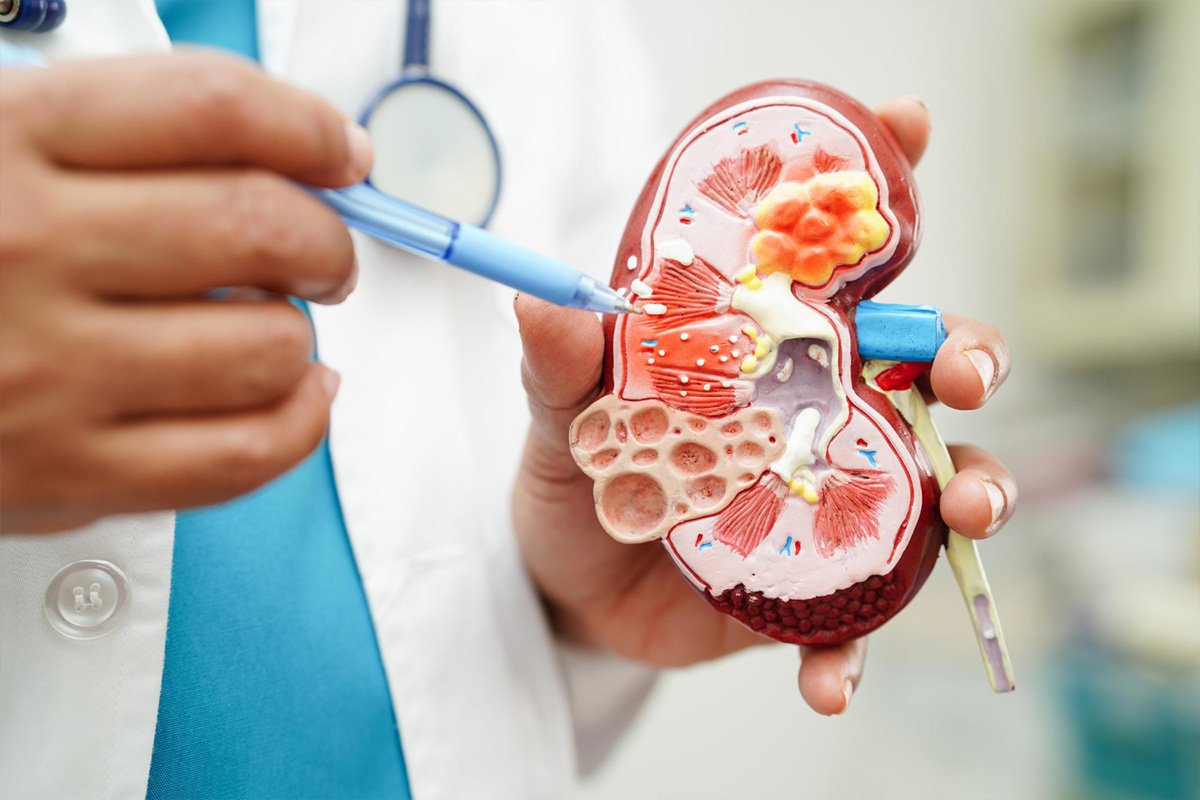
Urinary stones, also known as urolithiasis, are hard masses formed from crystals that separate from the urine and build up on the inner surfaces of the kidneys, ureters, bladder, or urethra. These stones can vary in size and location, and their formation can lead to significant pain and other symptoms.
Types of Urinary Stones
- Calcium Stones
- Calcium Oxalate Stones: The most common type, formed when calcium combines with oxalate.
- Calcium Phosphate Stones: Less common, often associated with metabolic conditions.
- Struvite Stones
- Formed in response to an infection, particularly urinary tract infections (UTIs). They can grow quickly and become quite large.
- Uric Acid Stones
- Formed in people who do not drink enough fluids or who lose too much fluid, eat a high-protein diet, or have gout.
- Cystine Stones
- Formed in people with a hereditary disorder that causes the kidneys to excrete excessive amounts of certain amino acids (cystinuria).
Causes of Urinary Stones
- Dehydration: Not drinking enough water can lead to more concentrated urine, which can cause stone formation.
- Diet: High intake of protein, sodium, and sugar can increase the risk of some types of stones.
- Medical Conditions: Certain conditions like gout, hyperparathyroidism, and urinary tract infections can increase the risk of stone formation.
- Genetics: Family history can increase the likelihood of developing stones.
- Medications: Some medications can contribute to stone formation.
Symptoms of Urinary Stones
- Severe pain in the back or side (renal colic)
- Pain radiating to the lower abdomen and groin
- Pain during urination
- Blood in the urine (hematuria)
- Frequent urge to urinate
- Nausea and vomiting
- Fever and chills if an infection is present
Diagnosis of Urinary Stones
- Imaging Tests: CT scans, X-rays, ultrasounds, or intravenous pyelograms (IVP) to visualize the stones.
- Urine Tests: To detect crystals, blood, or infection.
- Blood Tests: To identify underlying conditions contributing to stone formation.
Treatment of Urinary Stones
- Conservative Management
- Increased Fluid Intake: Helps flush out small stones.
- Pain Management: Medications to manage pain.
- Medications: Drugs that help pass the stones or prevent stone formation.
- Medical Procedures
- Extracorporeal Shock Wave Lithotripsy (ESWL): Uses shock waves to break stones into smaller pieces that can be passed in the urine.
- Ureteroscopy: A scope is inserted through the urethra and bladder to remove or break up the stone.
- Percutaneous Nephrolithotomy: Surgical removal of large stones through a small incision in the back.
- Open Surgery: Rarely needed, but may be required for very large or complicated stones.
Prevention of Urinary Stones
- Hydration: Drinking plenty of fluids to dilute the urine.
- Dietary Changes: Reducing salt, protein, and oxalate intake.
- Medications: Prescribed for individuals with a history of recurrent stones or specific metabolic conditions.
Managing urinary stones effectively involves a combination of prevention, prompt treatment, and regular follow-up to avoid recurrence. If you experience symptoms of urinary stones, it’s important to seek medical advice for proper diagnosis and treatment.
Services
Need Any Help
Need Any Help, Call Us 24/7 For Support
